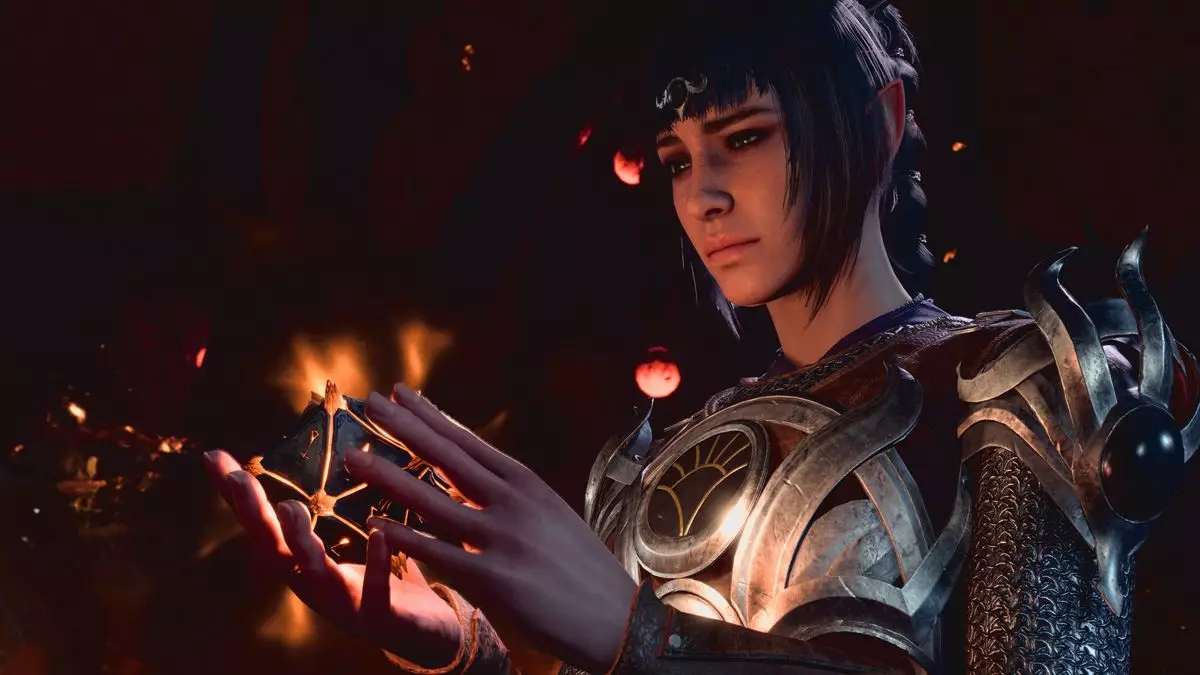Baldur’s Gate 3, the much-anticipated sequel in a classic role-playing game franchise, has not only captured the hearts of gamers since its release a year and a half ago, but it has also been a transformative experience for many involved in its creation. One of the standout contributions is from Jennifer English, who lends her voice to the enigmatic character Shadowheart. The impact of Baldur’s Gate 3 extends beyond the gaming world, influencing the personal and professional lives of its cast members. In this article, we will explore the nuanced journey of English and her character, Shadowheart, diving deep into the broader implications of their success.
Reflecting on the months since the launch of Baldur’s Gate 3, English recounts a whirlwind journey of fame and recognition. “My life has changed completely,” she states, with a palpable excitement that resonates through her words. The explosion of interest surrounding the game has turned her into a recognizable figure, something that feels surreal to her. The recognition she experiences on the street underscores a significant shift in her life and career. This newfound visibility has not only allowed her to travel and engage with fans but has also instilled a sense of validation in her craft.
Such recognition is symptomatic of something deeper than mere popularity — it speaks to the powerful connection audiences form with characters in sophisticated narratives. Shadowheart’s character, with her nuanced story arc, resonates across diverse player choices, reflecting the layers of humanity that inform great storytelling. English’s role in this narrative comes with the acknowledgment that gaming is no longer just about entertainment; it is a conduit for exploring profound themes like identity and choice.
The Layers of Shadowheart
Shadowheart’s journey within Baldur’s Gate 3 is renowned for its depth and complexity. Her quest for self-discovery is a compelling aspect that not only drives the game’s narrative but also challenges players to confront their own moral and ethical dilemmas. English articulates that the character’s development is not linear but multifaceted, allowing players to experience different endings based on their decisions. “It’s yours, it’s whatever you choose it to be,” she explains, emphasizing the personalization embedded in the gameplay.
This unique approach to storytelling elevates the immersion factor for players. Depending on their choices, players can shape Shadowheart’s allegiance to the deity Shar or redirect her path to redemption, making her journey a mirror reflecting their values and decisions. For English, delivering these varied outcomes was an opportunity to showcase the character’s authenticity without being misled by audience expectations. This sentiment echoes a broader conversation in the acting community about the danger of letting audience perception dictate creative choices, reaffirming that authenticity must remain the North Star.
English is acutely aware of the delicate balance between character portrayal and public persona. Throughout her reflections, she stresses the value of prioritizing truth in her performance rather than worrying about how the character might be received. “It’s so important for us as performers to focus on that truth,” she states, implying that a genuine connection to the character ultimately resonates more deeply with audiences, regardless of the character’s public persona.
Moreover, her perspective on performance aligns with the essence of role-playing games: players must immerse themselves wholly in their characters to create authentic experiences. English’s commitment to her craft emphasizes that actors should remain grounded in their portrayal, aiming for believable and relatable characters — regardless of their popularity. This focus on truth not only cultivates richer storytelling but ultimately enhances the player experience in a meaningful way.
The Future: Possibilities and Potential
As discussions around the future of Baldur’s Gate 3 and the world of Faerûn continue, the question of Shadowheart’s return lingers in the air. Although Larian Studios has opted against creating DLC for the game, there remains the possibility that Hasbro, the owner of Dungeons & Dragons, may explore further adventures with these characters. English’s hopeful outlook hints at a collaborative creative future, stating the importance of producing content that remains true to the audience’s desire for inclusivity and innovation.
Ultimately, Jennifer English’s journey with Shadowheart symbolizes a significant shift in how storytelling is approached within video games. It reinforces the notion that characters can live beyond their fictional realms through the passion and dedication of those who bring them to life. As players continue to shape the narratives of Baldur’s Gate 3, the legacies of its characters and those who voice them will undoubtedly continue to evolve. This saga is not just about playing a game; it is about immersing oneself in a rich tapestry of interwoven human experiences.


Leave a Reply